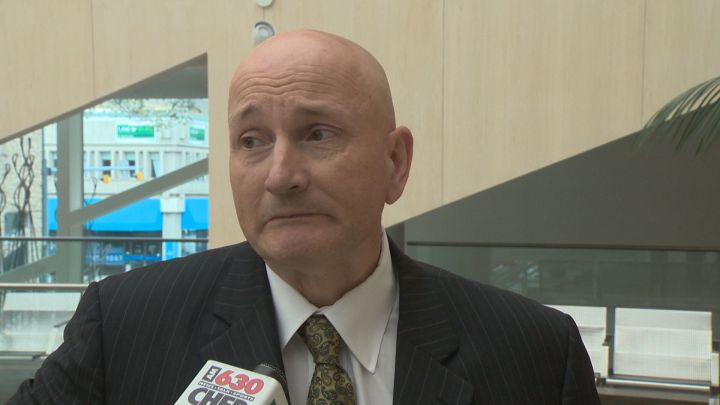One Edmonton city councillor says residents are paying more in property tax than they should because the city isn’t attracting enough business to boost the non-residential tax base.

Mike Nickel blames higher costs and red tape as reasons millions of square feet of commercial space are being set up in the region but outside Edmonton’s borders.
“A primary indicator that things aren’t working well is the commercial manufacturing sector is jumping the jurisdiction.
“There’s $1.50-a-square-foot difference between our counties and us.”
Nickel made the comments during the council debate that set the final 2018 tax increase at 2.4 per cent, a $95 increase on a so-called average $397,000 home, bringing that average resident’s tax bill to $3,019. The municipal portion is $2,468, an $83 increase. The rest, $551, is the education portion, payable to the province. In total, it means Edmonton homeowners will see a 3.5-per cent increase.
READ MORE: 2018 Edmonton tax increase set at 3.5%
“Why should that matter to the average rate payer? What we don’t make up on the non-residential side — in manufacturing and commercial, for example — you have to pick up on the residential side,” Nickel said in an interview with 630 CHED News.
“So if you don’t have a balanced, well-thriving commercial/industrial sector, the residential rate payer is the one sucking it up.”
Nickel cited information passed along to his office from area realtors.
“The realtors have shown me several million square feet that have jumped the jurisdiction and the reason they are giving is that the red tape is too high in the city and taxes are too high in the city.
“There’s a real consequence to that.”
An example he provided is the Ford distribution centre that was announced in May of last year, at 400,000 square feet.
“At $1.50 (per square foot) … you can see their business decision is pretty simple.”
Chief Financial Officer Todd Burge said the city’s administration is aware of the problems and is working on a “white paper” to address shortcomings, especially on the red tape.
He said they see the need to “reduce the amount of time it takes somebody to get through the process and get something built within the city.”
However, Burge also told council that Edmonton has other advantages that need to be promoted.
“The other benefit you have … that maybe other jurisdictions don’t have at this time is the workforce access.
“I think there’s other services that you’d get within the city boundaries that could be supportive to your business and we need to push those things to ensure business attraction.”
Nickel is “dubious” the administration can clean up its act. He said he’ll be asking questions of the sustainable development staff during Audit Committee on Wednesday, delving into a report looking at how $8.5 million was wasted setting up an information technology system.
“That was supposed to be part of our business attraction. That didn’t happen purely due to bad management.”
Tax assessments will be mailed in May and taxes will be due at the end of June.






Comments